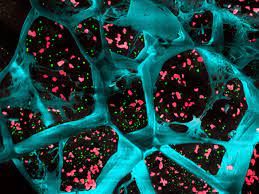Biodegradable Gel Boosts Immune System’s Attack on Cancer…
Another biodegradable gel works on the invulnerable framework’s capacity to keep malignant growth under control after cancers are precisely eliminated.
The gel tried in mice, discharges medications and exceptional antibodies that all the while draining safe hindering cells called macrophages from the careful site and enact T cells so they can go after disease.
College of Wisconsin-Madison researchers tried the gel on mouse models of a few malignant growths. They observed that the gel actually held in line growths that are known to answer well to this sort of insusceptible treatment, such as CT26 colon diseases. However, the gel additionally functioned admirably against B16F10 melanomas, S180 sarcomas, and 4T1 triple-negative bosom malignant growths, which are less receptive to safe treatment and more inclined to metastasize.
This confirmation of idea investigations will uphold extra exploration on other creature models that could prompt future clinical preliminaries in individuals.
The trials were driven by the lab of Quanyin Hu, a teacher in the UW-Madison School of Pharmacy, with help from drug store teacher Seungpyo Hong and associates in the UW School of Medicine and Public Health. The group distributed their discoveries on April 6, 2022, in the diary Nature Communications.
“We are truly happy to see that this neighborhood system can neutralize such countless various types of cancers, particularly these non-immunogenic growths,” says Hu. “We are much happier to see this nearby treatment can restrain cancer metastasis.”
The medical procedure is a phenomenal therapy for some growths, however, little quantities of disease cells that stay after the activity can permit cancers to recover. To check this cycle, the specialists fostered their gel to deliver into the careful site two key parts gradually.
One is the medication Pexidartinib, which is endorsed for use to hinder the capacity of growth-related macrophages. These cells advance the development of cancers and restraining the cells eases back that destructive development.
The second part of the gel was platelets – the pieces of cells that coagulation blood – bound to resistant animating antibodies. These antibodies, known as hostile to PD-1, help the invulnerable framework’s T cells perceive and go after harmful cells.
The analysts trusted that the neighborhood arrival of the immunizer-bound platelets and Pexidartinib would both augment their impact close to the growth site and limit incidental effects that happen when these treatments are given intravenously and the course generally in the body. To be sure, mice given the gel showed inconsequential incidental effects. Bodies debase the gel over the long haul.
Hu’s group tried the gel against a wide set-up of malignant growths in light of the fact that these cancers fluctuate by the way they answer safe-based treatments like the counter PD1-formed platelets. For each situation, the gel fundamentally eased back the development of waiting for disease cells and expanded the life expectancy of mice. The gel additionally enormously decreased the spread of the metastasizing bosom malignant growth model the scientists inspected.
As of late, Hong and Hu have autonomously been growing better approaches to control malignant growths without customary chemotherapy, which makes extreme side impacts. Presently teaming up, they intend to keep testing innovative methodologies that could track down their direction in human patients before very long.
“This is only the underlying period of cooperation between our two labs,” says Hong.
Src: scitechdaily.com

